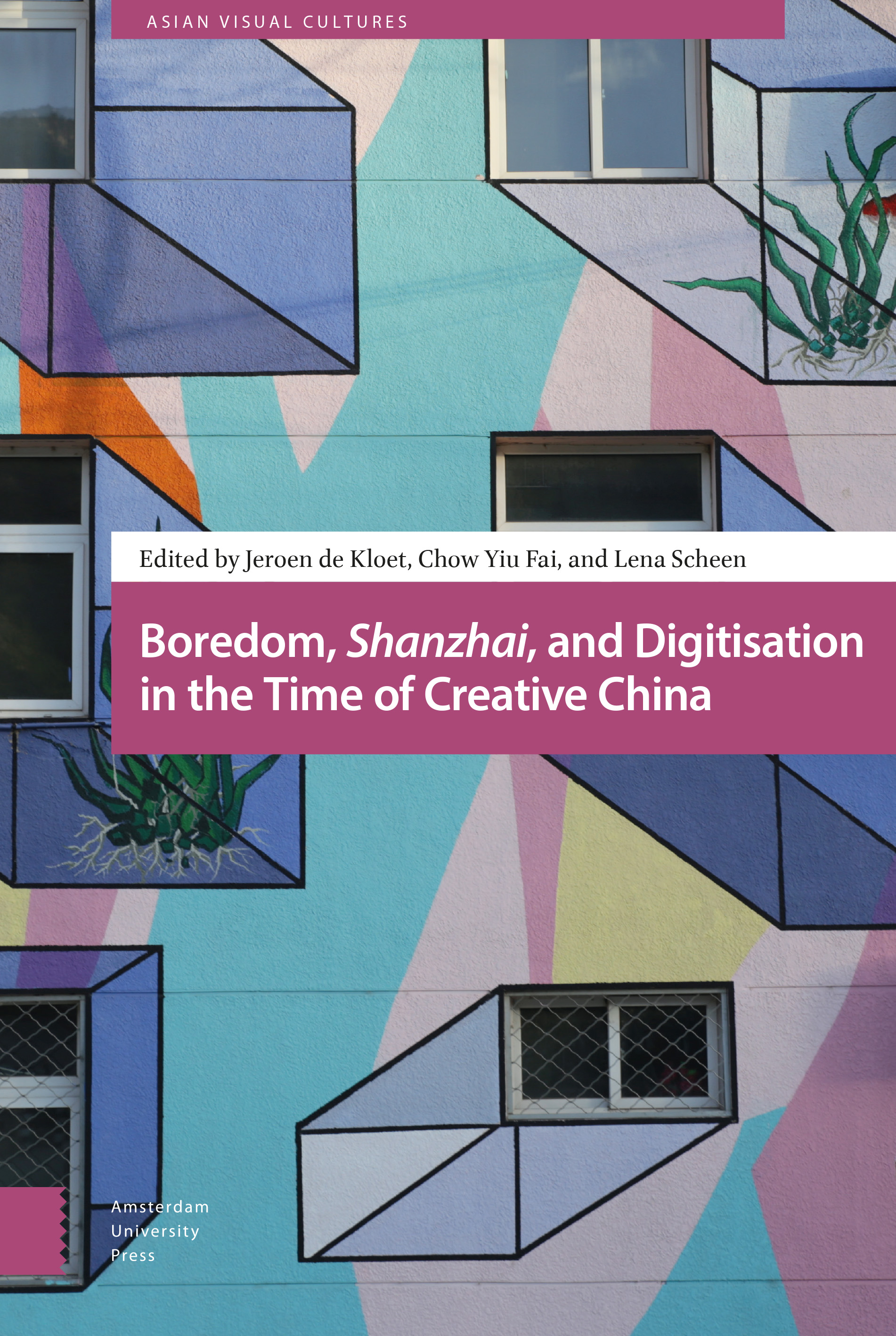spacetime coordinates: early 21st c China
directed by Chinese-American producer & director Jessica Kingdon
produced by Kira Simon-Kennedy and Nathan Truesdell
music: Dan Deacon
“The film follows the Chinese dream (中国梦) through the social classes, prioritizing productivity and innovation.” (wiki)
According to an opinion piece published on Qiushi (the leading official theoretical journal of the Chinese Communist Party), the Chinese Dream is about “Chinese prosperity, collective effort, socialism, and national glory”.
I am going to jot down a few quick thoughts after a fresh viewing of the new immersive documentary made by Jessica Kingdon – as it is one of the best recent documentaries about China. When one sez “China” one should be very skeptical – since the whole topic is now politically and emotionally charged. There are stakes on all sides from a growing quite dangerous sinophobia, discrimination, and racism against people of Asian origin around the world. There are many points of contention and everything feels to add to the previous biases – including accusations of alleged forced ‘sinicization’ of minorities, crackdowns and labor camps for ethnic Uyghur minority in Xinjiang & minority religious groups (especially Moslems), a crackdown on HK (one country two systems), fears over Taiwan, the continuing debate surrounding zoonotic spillover event at the wet market in Wuhan including the Biden’s administration recent military buildup as a response to both Russia & China. One should never make a sandwich out of these separate issues. The most dangerous at the time I think is the old imperial ‘Unipolar Moment’ US-led saber-rattling. Warmongering is hot at the moment, the old frames don’t help and what we are living is not a new Cold War but more of ‘hot peace times’ (as Zizek put it in long-read about the war in Ukraine) where inflammatory rhetoric covers up a much more mundane & business as usual reality. That said, Zizek himself has been a strong critic of what he used to call in an Al-Jazeera interview the (non-)alternative to the English neoliberalism “Chinese-Singaporean capitalism with Asian values”. No matter of you call it that or “State-led capitalism with Confucian Characteristics” (as Chinese themselves sometimes prefer), there is a lot more to be said and I don’t think one can have a monolithic position at this shifting crossroad, especially when China is the only contending world power that still believes in some form of multilateralism & noncynical win-win globalism. In the West, it becomes easier and easier to dismiss or ignore the diversity of the contemporary ideological field in China, including its various currents and countercurrent of orthodox or heterodox economical thought that have shaped and continue to influence its policy issues today.
What is clear is that Chinese media is being too easily labeled nowadays as “state-affiliated” media as if the western media is free of any affiliations or strings attached. In response we should label various western media outlets, Twitter now as Musk-affiliated or Bezos-affiliated (Washington Post) media. I find this a ridiculous hyperbole, an example of shameful double standard, a forgetfulness by Big Tech that is trying to rebrand itself as ‘national asset’ in the New Cold War. Apart from a divergence explained by commercial rivalries, there’s a lack of social media overlap btw Big Tech and local Chinese tech companies and platforms explained by the specifics of China’s ‘Ascension’ since the 1970s libéralisation and gradual opening towards today’s economic modernisation. Chinese innovation is thriving today because of this wise divergence in policy – they learned to exist and develop because the Big Tech was regulated by the Chinese state giving local startups a chance in the face of the Californian tech behemoths. So this disconnect has been partially useful and intentional +yet we’re living a cultural-linguistic & EuroAmerican – centric disconnect from the Sinosphere (the online world of wechat, Douyin, Weibo, Bilibili and more) – insuring a lot of misunderstandings and the usual faux pas. Purging the US. academia & technoscience as a response to current strategic realignment & divestment is not the answer (without considering the “role of firms from core capitalist countries in industrial relocation to and foreign direct investment in the PRC“). Not that social media can ever clarify anything, even while it vows to filter disinformation – it’s just that one can only see the big bubble of the others, not one’s own… There are many post-digital folklore anthropologists and social media sociologists and documentarists changing all this and I am grateful to them. While at official levels (policy, diplomacy, politics) there is this monologue about US-Chinese decoupling, ‘new cold war’ dangers, economic nationalism, the ground level transitioning away from a unipolar (US-centered) world requires both artistic & documentarian skills – since there are preciously few bridges. Otherwise, we will fail miserably, being blind to how interconnected things are or what kind of East-West dialectics is there afoot.

China is understandably wary of any Western involvement in its internal affairs and has sound historical reasons for that, yet it also tries to diversify its own exterior presentation & identity, while being at the same time busy solving its national (internal) unprecedented problems (slowing economy, aging population, ecological green energy transition, cracking down on tech giants, regulating & curbing the real estate boom + the managing its worst COVID lockdown crisis yet). Whether we understand, empathize or not, 21st c China is in a continuous dialogue with the outside world. China knows what it has to face, no matter what skeptics are saying. It also tries to do something nobody ever tried in the history of humanity, to take seriously all these challenges and not be cynical about it or over-confident. China is not trying to lay low and double down, pretend they’re not there and just let a few reap the benefits of “disruption” or Schumpeterian “creative destruction” (like the 2008 Crisis bailouts have demonstrated again and again).
Ascension – tries to fill this gap in many ways. It shows a diversified, socially ebullient world. It’s full of invisible overwork, myriad supply chains and also of fantastic vistas, and yes a billion dreams, wishes, artificial worlds, constant promotional feeds and the so-called “fan economy” or Wanghong economy of internet fame (like one of the Chinese streamer turned personal brand trainers sez in the docu). Ascension – the title has some religious ring to it – yet this is a very secular bootstrapping effort. It is zooming in on various, very difficult & still evolving aspects (from factory work to leisure, from previous external export orientation to internal markets) without transforming them into nefarious dystopian verdicts or snark remarks. Skills and tutorials seem to pervade this offline to online fluidity – people are constantly speaking into phones, recording DIY ads utilizing a mobile phone & selfie stick, pampering their image, making photo shoots, posting or making product placement, or learning how to promote their personal brand and train themselves into possible jobs and life choices while confronted with immense pressures to be materially successful and be a ‘super boss’ (garner fans) not just a boss (a boss without fans). One can see a much more accelerated version of Western neoliberalism, yet one can also see more experimentation – vernacular digitalisation, tryout of everything available. The movie does not comment or deconstruct. It does not ignore the whole breath of experiences and it also does not try to be exhaustive (how could it be in a billion people strong country?). Everything is spaced out, has a unreal feeling and this whole ecosystem of online Chinese celebs – influencers, gamers and consumer culture leadership seminars might be repulsive or feel oddly hyper-consumerist yet it is only part of the story. It all starts with what is lacking in most accounts of China – its migrant worker population (about 130+ million strong) being called by Foxconn recruiters on buses. These workers are the workers that have been most affected by the current lockdown. Workers doing highly repetitive work in the shop floor of the world, considered extinct (or unacceptable) in the West (old Fordist conveyor belts) while also watching soaps on their phones online.
From amazing (both toxic fume and surreal) scenes inside sex-doll factories to simple plastic bottle’s water filling to thousands of bikes, everything gets some form of coverage. It also records the in between talks of workers & managers, talk about ghosts in factories, fengshui swords, fragments and daily bits of “chit-chat”, people tired, nervous, janitors having small naps during work, getting an electric massage and training to become shock workers or bodyguards or butlers to the new well-off China’s rich. There is an intensity that is hard to convey, and there is a sort of exuberance & non-innocence that seems to go along with ‘working hard & party hard’.
I think it is completely wrong and foolish to focus on China mimesis of the West, this is completely the wrong alley for me. There is something else afoot and this documentary proves it. My deepest impressions are somehow turning around learning (the bad and the good, almost like throwing back in the face of the West its own Western superfluous étiquette or witnessing such a dedication for the basics of Western literacy). The very fact is that the people of China of all classes want internationalism, are becoming increasingly cosmopolitan, and are more than ever wooing the West. Are people in the West doing the same? Are they even putting an ounce of effort or interests to see beyond their ‘big noses’? I don’t think so.
What is important here is that it is not just an individual ordinary effort or state -sponsored or party led one – it is almost a communal effort to enjoy the newfound place on the international world & probe, go crazy with the incredible affordances that it’s hard to match – expanding infrastructure is offering (railroads, trains, IT, AR, online AI assisted tech, face recognition, virtual pay systems, QR core everything) water park arena events (simultaneously) with efforts to get better at everything – to learn everything, from science & tech to good manners to simple basic behaviors as useless (?) as smiling exercises or the ‘Western business étiquette hugging’. Let them hug you and hug them back as softly or strongly as they do!
That said – I would have liked more palpable experience of China’s vast new networks of public transport or its actual Research & Development ‘business parks’, incubators – all the state-private technoscientific capabilities (including its space exploration program) or the biomedical advances. There were snippets of subcultural milieus – yet this was indeed explored elsewhere in some detail(thinking of the amazing Shamate that I still haven’t seen). Also would have liked to see more about internal tourism -even its red tourism.








